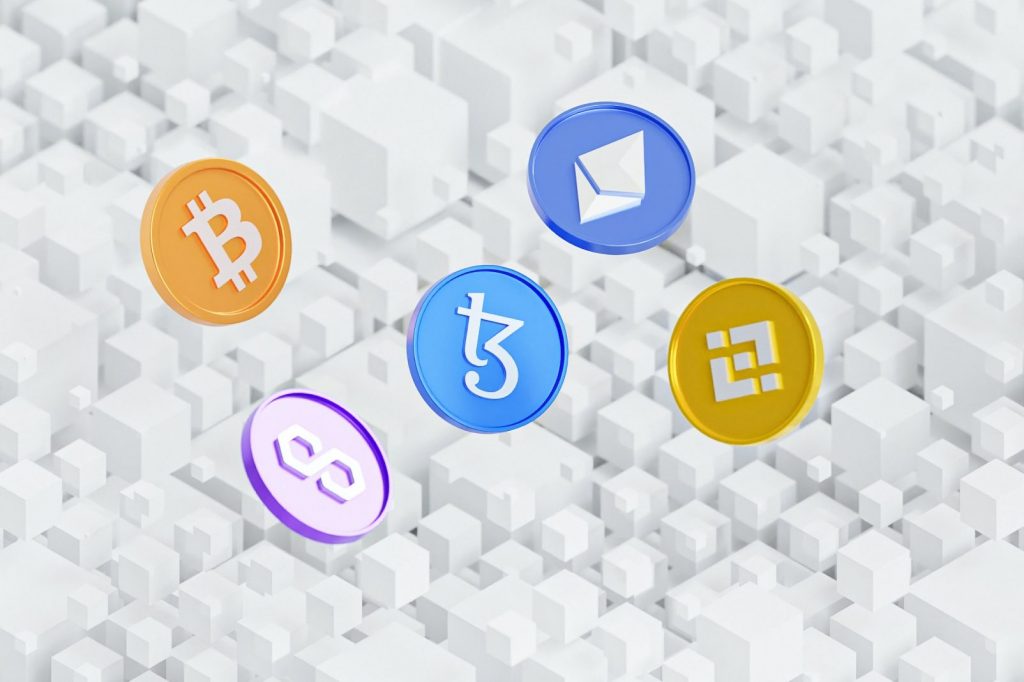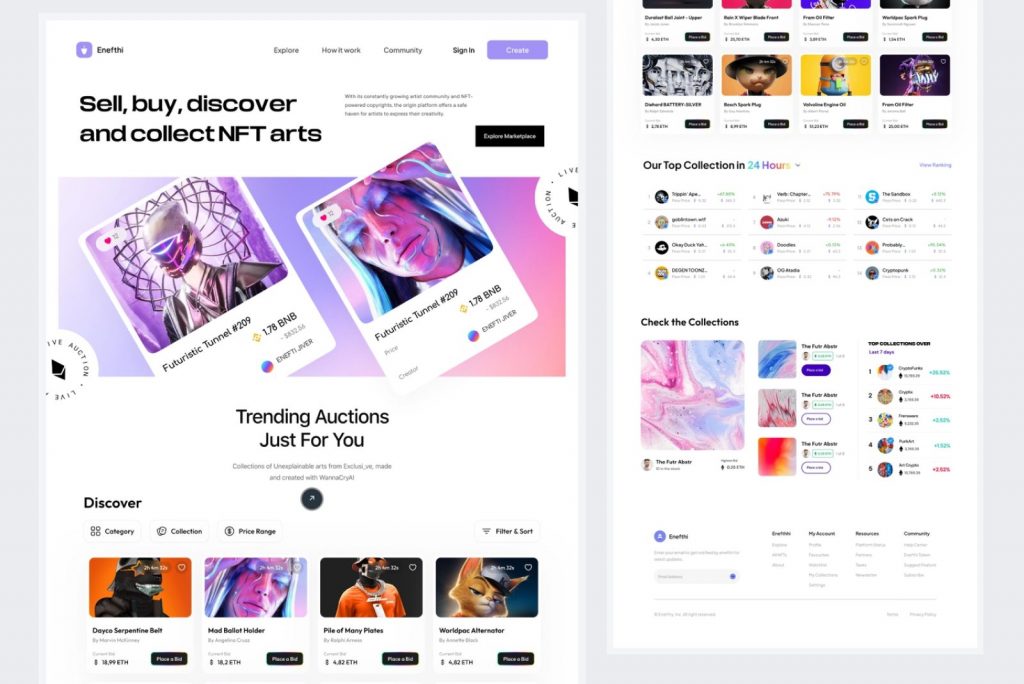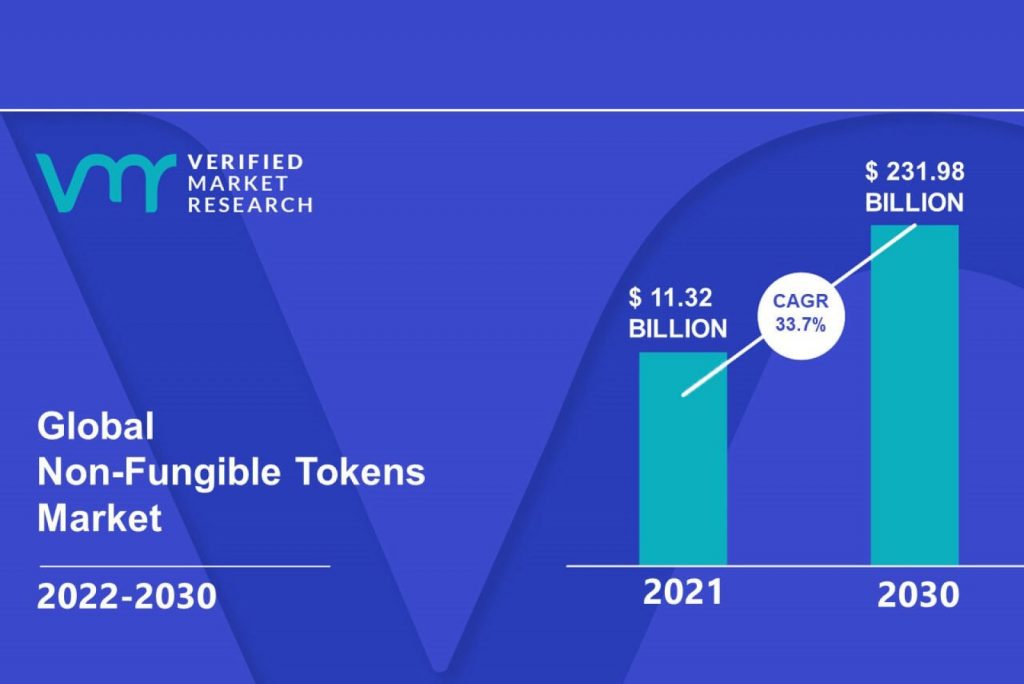Giuseppe Avagliano
Jun 15, 2023 • 6 min read

NFTs or Non-Fungible Tokens are digital assets that represent ownership or proof of authenticity of a unique item or piece of content, such as art, music, videos, or other digital files.
NFT marketplaces are platforms that allow creators to mint and sell their NFTs, buyers to purchase and own them, and sellers to trade them. NFTs and NFT marketplaces have become increasingly popular in recent years, with several high-profile sales and auctions, such as the sale of Beeple's digital artwork for $69 million.
Developing an NFT marketplace can be a complex and challenging process that requires expertise in blockchain technology, smart contracts, user experience design, and security.
For creators, buyers, and sellers, NFT marketplaces offer unique opportunities to monetize and trade their digital assets. However, businesses face several challenges in developing NFT marketplaces, such as technical complexity, regulatory compliance, user adoption, and scalability. In this article, we will explore the importance of NFT marketplace development services for businesses and the benefits they offer for creators, buyers, and sellers.
We will also discuss the challenges faced by businesses in developing NFT marketplaces and best practices for overcoming them
NFT marketplace development services involve the creation of digital marketplaces that allow for the buying and selling of non-fungible tokens.
There are various types of NFT marketplaces, including primary and secondary marketplaces. Primary marketplaces are where creators sell their NFTs to buyers directly, while secondary marketplaces facilitate the exchange of previously sold NFTs between buyers and sellers.

NFT marketplaces typically come with features such as bidding mechanisms, payment gateways, and user profiles. Additionally, some marketplaces may also offer advanced features such as fractional ownership, royalties, and auctions.
When considering NFT marketplace development, businesses must decide whether to build a custom marketplace or use a pre-built platform.
Building a custom marketplace gives businesses full control over the features and functionality, while pre-built platforms offer a quicker and more cost-effective solution.
Best practices in NFT marketplace development include ensuring security, scalability, and compliance with legal and regulatory requirements.
NFT marketplace development services offer several benefits to creators, including new revenue streams. With the help of NFT marketplaces, creators can monetize their digital art and collectibles by selling them as unique and authentic NFTs.
The use of smart contracts ensures that creators receive a portion of the sales each time their NFT is resold. This provides them with a continuous stream of income, even after the initial sale.
NFT marketplaces also increase the liquidity and value of NFTs. By providing a platform for buying and selling NFTs, these marketplaces create a market for digital assets that was previously non-existent.
This enables collectors and investors to trade NFTs and ensures that NFTs are not just a one-time purchase. The value of NFTs can increase over time as more people become interested in owning a particular piece of digital art or collectible.

In addition to creating a market for digital assets, NFT marketplaces also offer enhanced security and transparency for NFT transactions. The use of blockchain technology ensures that NFTs are unique, authentic, and cannot be replicated or duplicated.
This provides buyers with peace of mind that they are purchasing a genuine digital asset. The transparency provided by blockchain technology also ensures that all transactions are recorded on the blockchain, making it easy to track ownership and provenance of NFTs.
Finally, NFT marketplaces offer access to a wider audience of buyers and collectors. By making digital art and collectibles accessible to a global audience, creators can tap into a larger market and increase their reach.
This provides them with more opportunities to sell their NFTs and reach a broader audience. As more people become interested in owning NFTs, NFT marketplaces will continue to grow in popularity and provide creators with new opportunities to monetize their digital assets.
NFT marketplace development services require careful planning and execution to ensure success. Some key considerations include:

As the popularity of NFTs continues to grow, the demand for NFT marketplace development services is also increasing. One trend in the industry is the integration of blockchain technology to provide secure and transparent transactions for buyers and sellers.
Another trend is the use of artificial intelligence and machine learning to personalize recommendations and improve user experiences. Additionally, there is a growing interest in social NFT marketplaces that facilitate social interactions and community building among NFT collectors.

Looking to the future, NFT marketplaces are expected to become more mainstream and accessible to a wider audience. This will be driven by the increasing interest and adoption of NFTs across different industries, such as gaming, music, and sports.
In addition, the development of interoperable NFT marketplaces that allow for the exchange of NFTs across different platforms is expected to be a major trend. Finally, the use of NFTs for virtual real estate and virtual world ownership is an emerging area that could revolutionize the way we think about digital assets.
In conclusion, NFT marketplaces provide a unique opportunity for creators, buyers, and sellers to showcase and monetize digital art and collectibles.
NFT marketplace development services offer a range of benefits, including increased liquidity, enhanced security, and access to a wider audience of buyers and collectors.
However, businesses must consider key factors such as defining business objectives, assessing current systems and infrastructure, and ensuring security and compliance when developing an NFT marketplace.
As the NFT industry continues to grow, emerging technologies are likely to have a significant impact on NFT marketplaces. Future trends in NFT marketplace development services will be shaped by advancements in blockchain technology, user experience design, and digital asset management.
NFT marketplaces will play a crucial role in driving the growth of the NFT industry, enabling creators to monetize their digital assets and providing buyers with new ways to invest in digital collectibles.
If you're considering NFT marketplace development services, it's essential to work with an experienced partner who can guide you through the process.
At Lasting Dynamics, we offer a range of NFT marketplace development services to help businesses capitalize on the opportunities offered by the NFT industry. Contact us today to learn more and book a free call with our team.
Giuseppe Avagliano
Giuseppe is a Marketing expert with 10 years of experience in international media companies and e-commerce. He is passionate about everything that concerns technology, ranging between advertising, smartphones, computers, Cryptos, and NFTs. For sure, there is more coffee than water in his veins but still thinks that calm is the virtue of the strong.